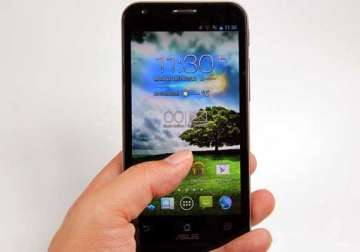New Delhi: Frequent chatting with friends over touchscreen smartphones can actually be brain altering, says a new research.
According to Indian-origin scientist Arko Ghosh from University of Zurich, Switzerland, more touchscreen use in the recent past has translated directly into greater brain activity when the thumbs and other fingertips are touched.
The news might not be so good, Ghosh and his colleagues say, noting the evidence linking excessive phone use with motor dysfunctions and pain.
"I was really surprised by the scale of the changes introduced by the use of smartphones. I was also struck by how much of the inter-individual variations in the fingertip-associated brain signals could be simply explained by evaluating the smartphone logs," said Ghosh, also working with ETH Zurich in Switzerland.
It all started when Ghosh and his colleagues realised that people's obsession with smartphones could be a grand opportunity to explore the everyday plasticity of the human brain.
To link digital footprints to brain activity, Ghosh and his team used electroencephalography (EEG) to record the brain response to mechanical touch on the thumb, index and middle fingertips of touchscreen phone users in comparison to people who still have not given up their old-school mobile phones.
They found that the electrical activity in the brains of smartphone users was enhanced when all three fingertips were touched.
In fact, the amount of activity in the cortex of the brain associated with the thumb and index fingertips was directly proportional to the intensity of phone use, as quantified by built-in battery logs.
The results suggest that repetitive movements over the smooth touchscreen surface reshape sensory processing from the hand, with daily updates in the brain's representation of the fingertips.
"We propose that cortical sensory processing in the contemporary brain is continuously shaped by personal digital technology," Ghosh said.
What exactly this influence of digital technology means for us in other areas of our lives is a question for another day, said the authors in a report appeared in the Cell Press journal Current Biology.
Latest Business News
